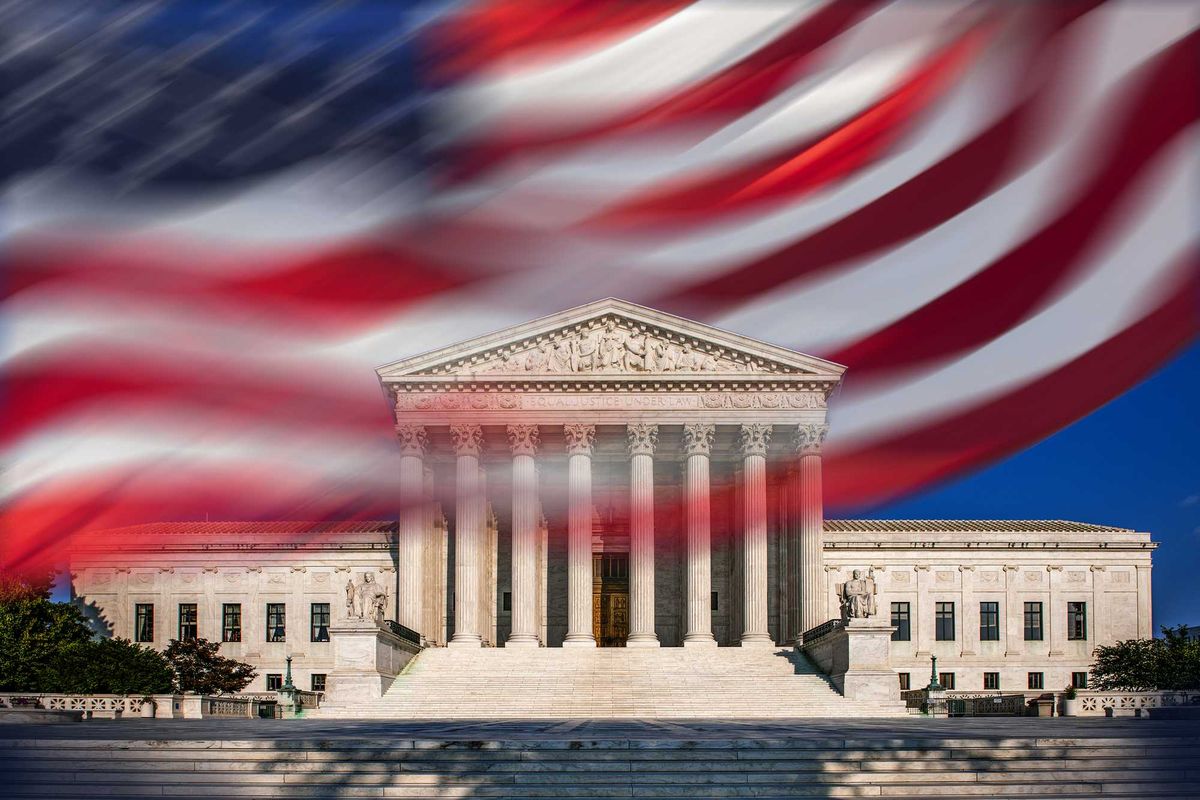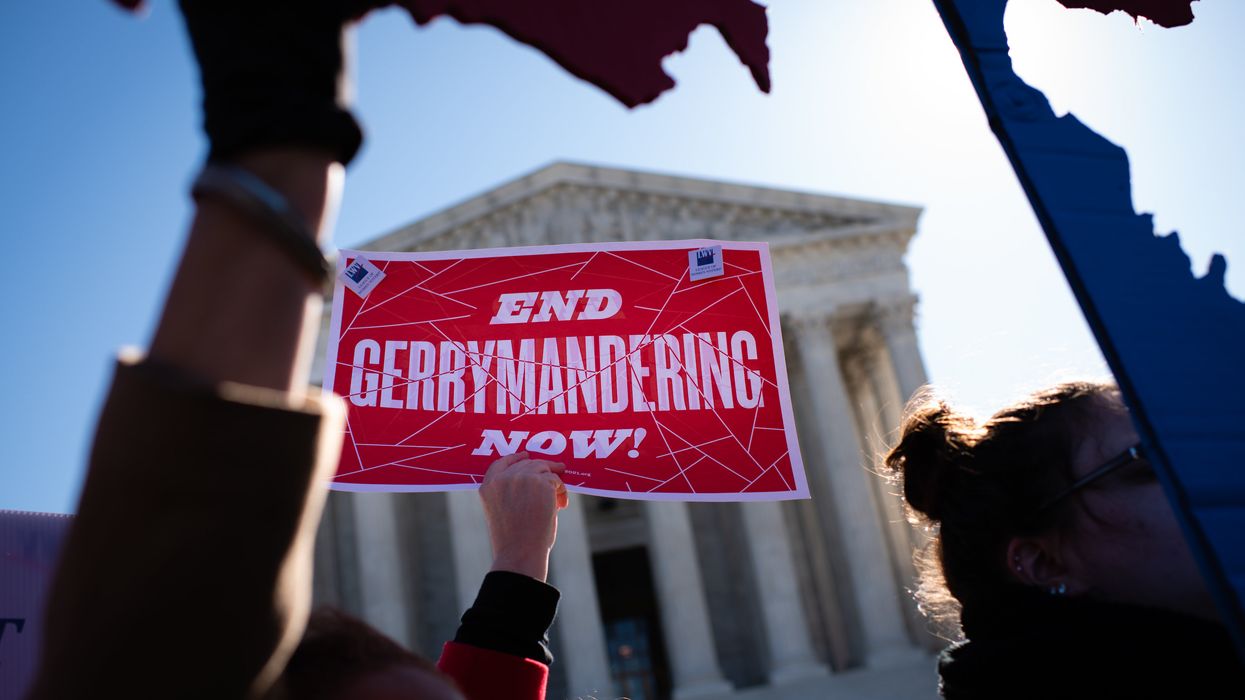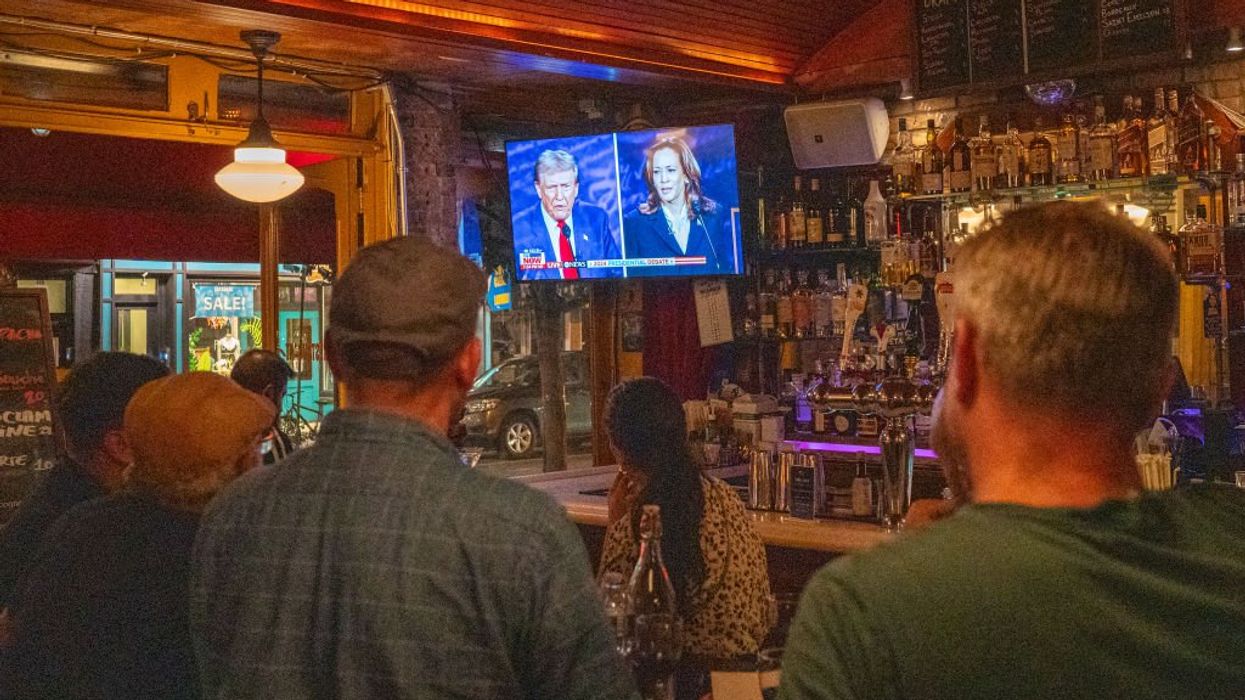Goldstone is a writer whose most recent book is "On Account of Race: The Supreme Court, White Supremacy, and the Ravaging of African American Voting Rights."
That American democracy is at a crossroads there can be no further doubt. Never have so many in and out of government advocated annulling a fair election, appointing political hacks to oversee future elections, allowing voting rights to be an afterthought, and packing the courts with rubber-stamp judges who would allow the Constitution to be end-run, ironically, in the name of the rule of law.
Blame for the current crisis has been foisted liberally — both figuratively and literally — on Republican Party leaders and lawmakers such as Ted Cruz, Josh Hawley, Mitch McConnell and Marjorie Taylor Greene, to say nothing of Donald Trump and his acolytes and cronies. Yet many on the left and the middle-right have been hesitant to condemn ordinary Americans who have supported their policies. Trump voters are often portrayed as misguided, conned by a master salesman, or hoodwinked into voting against their economic interests. Even Bill Maher, hardly a person tolerant of those who disagree with him, said, “I've preached, and still do, that you can hate Trump, but not all the people who like him.”
Democrats, on the other hand, are accused of failing to get their message across, unable to demonstrate to Trump-friendly demographic groups that theirs is the party that will protect their rights, help them through hard times and give them the best shot at prosperity. This implies that the problem is not endemic, but rather inept communication. Many Democrats and moderate Republicans are convinced that if they could only break through the Trump/Fox News stranglehold, working class Trump supporters will realize the error of their ways and embrace genuine democracy as their best hope.
Trump voters help buttress this assessment when they proclaim their bitterness toward the left. As The New York Times reported, “Portrayals of [Trump’s] base, these supporters say, are often distilled into a caricature: that they are all white bigots, in thrall to an authoritarian leader and lost in a fog of fact-denial.” One Trump supporter said, “I didn’t vote for Trump because I wanted him to be my best friend. I wanted to make a change and a difference.” And to her, he did make a difference and the nation is better for it. She added, “I think he’s very misunderstood.”
It is also common among Trumpists to dismiss his personal flaws and shrug away his aspiration to autocracy and promotion of violence as harmless hyperbole, what Steve Bannon calls “noise.” Unwillingness to take such pronouncements seriously reinforces the conviction of many on the left that effective persuasion is all the nation needs to save the constitutional norms that now teeter so precariously at the edge of an anti-democratic cliff.
But what if they are wrong? What if all this broadmindedness is misplaced, and those who defend their support of Trumpism with seemingly reasonable explanations are perfectly willing to destroy democratic institutions if that is what it takes to remain in power? What if this minority, which wields influence far exceeding their numbers, insist on their definition of religious liberty and of the 2nd Amendment and their standard of who should and should not vote — not because of Trump’s salesmanship, but because of unshakeable sentiments they previously dared not voice publicly? Now they can because they have discovered they are part of a movement … a movement that has also rejected required vaccination against a pandemic, measures to protect an increasingly fragile environment and voiced acceptance of violence as legitimate political expression.
In other words, what if Donald Trump has not conned these voters at all, but rather liberated them? Then they will never be won over because they do not wish to be.
If that is true, it demands a change of both perspective and tactics by moderate Americans on both the left and the right. Those in the center need to cease viewing fellow citizens who hold anti-democratic beliefs as potential allies, but rather as intractable antagonists who would willingly, even eagerly, tear down what it took Americans of courage and good will more than two centuries to build.
Saving the modern world’s first and longest-lasting democracy transcends policy differences. No one needs to abandon genuinely held beliefs, but to preserve the American experiment moderates of all stripes need to recognize that a properly functioning democracy will hear many different voices and that compromise is not merely good manners, but rather a necessity for survival.
Practically speaking, the first step is to embrace a tradition eschewed by the extremes of both parties — listening.
Listening, of course, presupposes that there is something to listen to. Americans who fear for the nation’s survival should begin to expose themselves to views different from their own — attend meetings at political clubs of the other party or organize discussion groups with those of opposing views.
Civil discourse is mandatory. Local government meetings, especially of school boards, should demand courtesy and must be willing to order security guards to eject an attendee who stoops to invective or personal attack. Anyone who issues a threat either in person or through social media must be identified and prosecuted — there is no First Amendment protection for threats of violence. Activism, therefore, should not be the sole province of extremists but should also be an avenue of moderation.
Personal contact, so difficult during a pandemic, might well be a key. Social media and electronic communication on platforms such as Zoom have their place but are no substitute for sitting in the same room while those who disagree explain their views. In addition, where Zoom meetings will simply log off, face-to-face encounters can lead to after-meeting discussions and invitations to talk further and build relationships. It has become trite to quote former Speaker Tip O’Neill’s old saw about all politics being local, but with our system of government in dire jeopardy, rebuilding from the ground up may hold the most promise of success.
These proposals may seem naive, and perhaps they are. But to a large extent, American democracy got its start in town meetings and on village greens, and that may be the best way to save it.



















